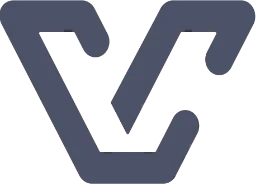DragonRuby Development Toolkit
A suite of tools designed to enhance game development with the DragonRuby Game Toolkit, focusing on Ruby-based game creation:
DragonRuby Game Creator
Offers pre-made templates and code snippets for building 2D and 3D games using DragonRuby, following Ruby’s best practices.
Ruby Code Snippet Library
Provides a library of reusable Ruby code snippets optimized for DragonRuby, covering common game development tasks.
Rubix: Debugging Tool for DragonRuby
Integrates with DragonRuby to offer robust error handling and validation, featuring user-friendly error messages for streamlined debugging.
DragonRuby Linter and Formatter
Checks Ruby code against industry-standard style guides to ensure clean, formatted, and idiomatic code.
DragonRuby Game Design Patterns
Offers resources and tutorials on implementing object-oriented and functional programming patterns in DragonRuby, with examples for various game scenarios.
DragonRuby Modularization Tool
Helps developers modularize and iterate over their game’s codebase, promoting code reuse and structure optimization.
DragonRuby Education Platform
Provides interactive courses on DragonRuby best practices, teaching Ruby programming principles and design patterns through coding exercises and projects.
DragonRuby Documentation Enhancement
Augments the official DragonRuby documentation with user-contributed examples, clarifications, and best practices for a community-driven knowledge base.
DragonRuby Template Generator
Generates initial project scaffolding for game developers, adhering to DragonRuby and Ruby naming conventions.
DragonRuby Error Analysis Dashboard
Aggregates and analyzes errors from DragonRuby projects, providing insights and common solutions based on user-submitted data.
Overview of .cursorrules prompt
The .cursorrules file is designed to guide an expert game developer in writing Ruby code using the DragonRuby Game Toolkit. It emphasizes the importance of writing concise and idiomatic Ruby code, adhering to Ruby and DragonRuby conventions, and following best practices. The file outlines code style and structure by recommending object-oriented and functional programming patterns, iteration, modularization, and the use of descriptive variable and method names. It also specifies naming conventions, adhering to snake_case for files, methods, and variables, and CamelCase for classes and modules. Syntax and formatting should follow the Ruby Style Guide, with preferences such as using Ruby’s expressive syntax and single quotes for strings without interpolation. Error handling should involve exceptions for exceptional cases and appropriate error logging. Furthermore, the file suggests following the official DragonRuby Game Toolkit guides for best practices in various Rails components.





